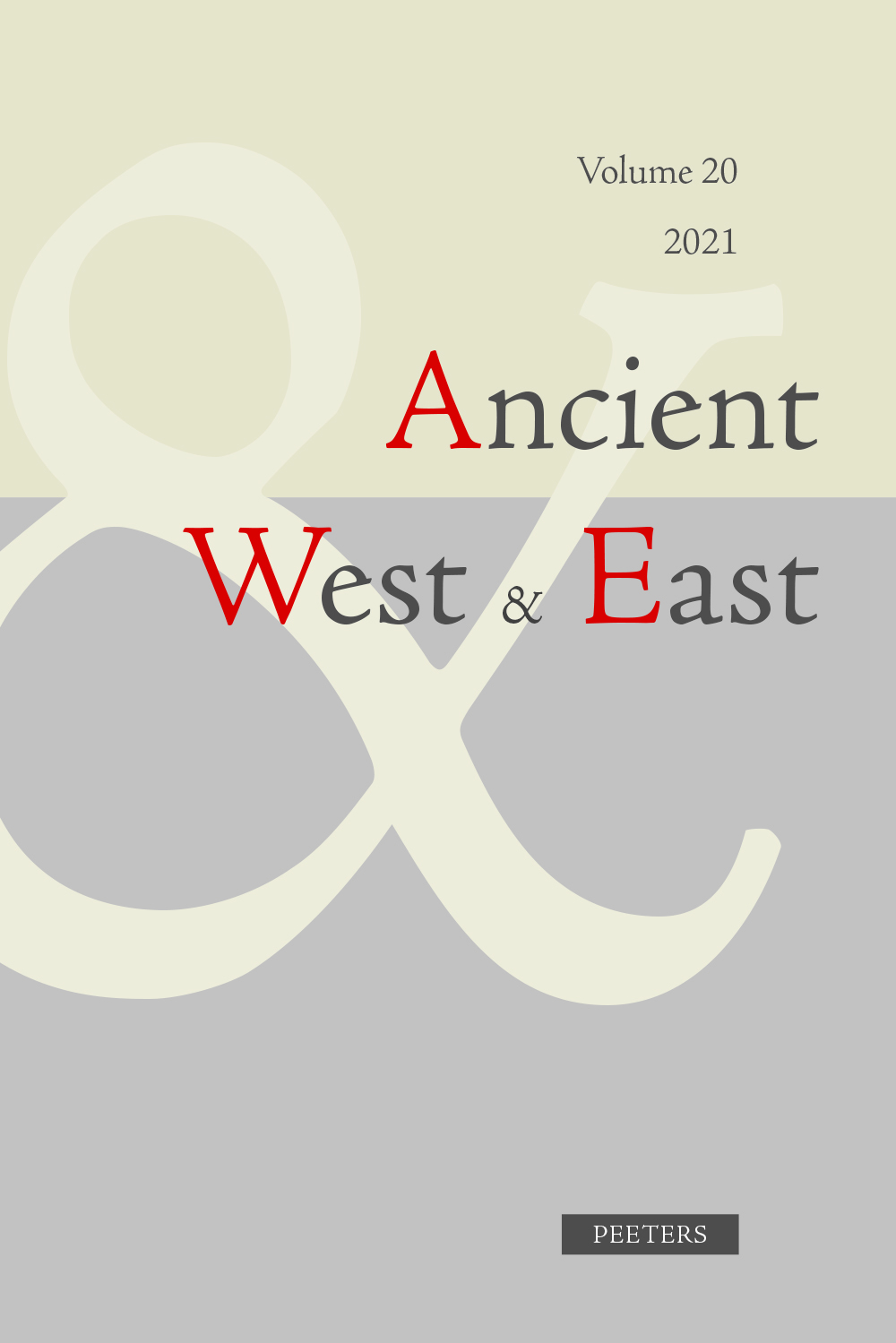 previous article in this issue previous article in this issue | next article in this issue  |

Preview first page |
Document Details : Title: Ancient Chronology, Eratosthenes and the Dating of the Fall of Troy Author(s): KOKKINOS, Nikos Journal: Ancient West & East Volume: 8 Date: 2009 Pages: 37-56 DOI: 10.2143/AWE.8.0.2045837 Abstract : Through close scrutiny of the surviving fragments of ancient chronography, it is possible to work out the way Eratosthenes, in his lost Chronographiai (ca. 220 BC), arrived at his date for the Fall of Troy (1183 BC) – a ‘universal’ reference point in antiquity. By combining new information from Manetho, with Timaeus, Ctesias, Herodotus and other sources, he devised a compromise chronology for the Greek past: ‘high’ enough to satisfy Hellenistic cultural interests, and ‘low’ enough to satisfy Alexandrian critical scholarship. What was reckoned originally to be an event of the 10th century BC, and later raised as far as the 14th century BC in competition with the older eastern civilisations, ended ‘appropriately’ being placed half-way in the 12th century BC. Surprisingly, this date, the mechanics of which were previously not fully understood, ultimately played a misleading role in the modern debate of the Greek archaeological ‘Dark Age’. |
|


